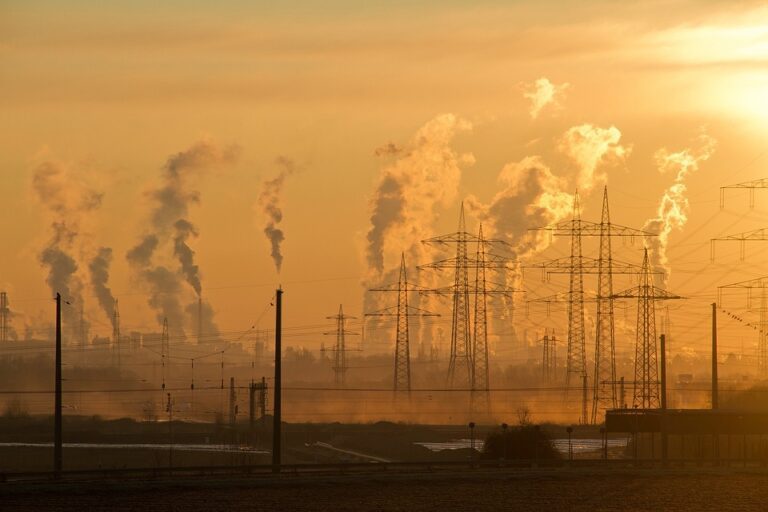Project 2025: A Turning Point for Earth’s Ecosystems?
In a world grappling with escalating environmental crises, Project 2025 emerges as a bold initiative aiming to revolutionize humanity’s relationship with Earth’s fragile ecosystems. Against a backdrop of profound biodiversity loss, climate change acceleration, and rampant habitat degradation, the undertaking aspires to set a new course towards sustainability. But as the world watches with anticipation, a crucial question arises: Can Project 2025 navigate the path to ecological salvation without tripping over its potential pitfalls?
Understanding Project 2025
Project 2025 is a sprawling, interdisciplinary endeavor designed to tackle some of the planet’s most pressing ecological challenges. Spearheaded by a coalition of scientists, policymakers, NGOs, and corporate leaders, it promises ambitious environmental restoration and conservation undertakings over the next several years. But while its goals are noble, the real test lies in execution, particularly concerning technology use, community involvement, and policy reforms to rejuvenate global ecosystems.
The Reality of Ecosystem Restoration
Project 2025 underscores ecosystem restoration as a key pillar, targeting reforestation, wetland rehabilitation, and coral reef revival. Yet critics argue that such large-scale interventions often overlook the complexities of native biodiversity and ecological interactions. In Brazil, for instance, well-intentioned reforestation efforts have sometimes prioritized fast-growing tree species over diverse native flora, leading to monocultures that fail to support local wildlife (1).
Moreover, the haste to restore can inadvertently lead to disruptions in existing human communities. For example, efforts to impose rewilding in regions where local populations depend on traditional land use practices can meet with resistance, undermining both ecological and social objectives (2).
The Contentious Path to Sustainable Practices
While advocating sustainable agriculture, fishing, and forestry holds promise, history has shown that the balance between development and conservation is fraught with tension. Agricultural practices aimed at reducing the carbon footprint, such as no-till farming, have sometimes led to increased herbicide use, raising new environmental concerns (3). Meanwhile, the shift towards responsible fishing quotas has often clashed with economic imperatives in fishing-dependent economies.
Navigating Climate Resilience Building
Project 2025’s call for climate resilience through renewable energy investments and climate-resilient infrastructure is ambitious yet contentious. Critics highlight the ecological impacts of renewable energy installations. Wind farms, while vital for reducing fossil fuel reliance, pose risks to bird populations, raising questions about the broader ecological trade-offs (4).
Challenges in Biodiversity Conservation
Biodiversity conservation is at the heart of Project 2025, with initiatives to expand protected area networks and battle illegal wildlife trade. Yet the ambition of increasing protected areas has ignited fears within indigenous and rural communities about losing access to traditional lands, echoing a historical pattern where conservation projects have disregarded human rights and local knowledge (5).
Technology: A Double-Edged Sword
Project 2025 leans heavily on technology, employing satellite imagery, drone surveillance, and AI for ecosystem monitoring. However, reliance on technology can overshadow low-tech, community-based approaches proven effective in conservation. Moreover, the privacy implications of expansive surveillance technologies remain contentious, often under-discussed in public forums.
Conclusion
Project 2025 presents a hopeful albeit complex prospect for the future of Earth’s ecosystems. Its vision hinges on collaborative, transparent, and sustained global engagement, yet it must tread carefully to merge technological advances with the lived realities and rights of human communities. As the planet stands on the brink of ecological turning points, initiatives like this offer a chance to forge a rebalanced narrative with nature—provided they reconcile ambitious objectives with inclusivity and integrity. The road to ecological harmony requires not only innovation but also a deep commitment to understanding and mitigating potential adverse impacts. As global citizens, we are urged to remain vigilant and proactive, ensuring that projects like 2025 work for both people and the planet.
References:
(1) Rudel, T. K., Defries, R., Asner, G. P., & Laurance, W. F. (2009). Changing Drivers of Deforestation and New Opportunities for Conservation. Conservation Biology, 23(6), 1396–1405.
(2) Baldauf, C., et al. (2012). The impact of plantation restoration policy on land prices: A case study from Brazil. Land Use Policy, 29(3), 559-564.
(3) Montgomery, D. R. (2007). Soil erosion and agricultural sustainability. Proceedings of the National Academy of Sciences, 104(33), 13268-13272.
(4) Kuvlesky, W. P., et al. (2007). Wind Energy Development and Wildlife Conservation: Challenges and Opportunities. The Journal of Wildlife Management, 71(8), 2487-2498.
(5) Dowie, M. (2009). Conservation Refugees: The Hundred-Year Conflict between Global Conservation and Native Peoples. MIT Press.
